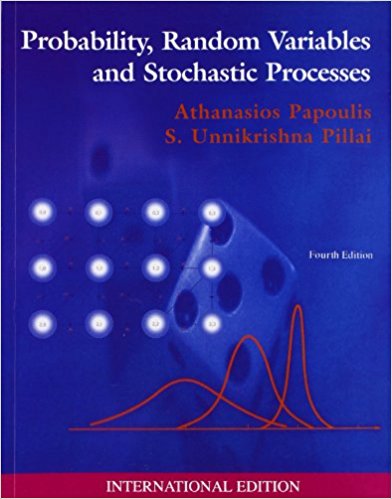We hope you love the books people recommend! Just so you know, The CEO Library may collect a share of sales or other compensation from the links on this page.
This book has 1 recommendation
Nassim Nicholas Taleb (Flaneur)
When readers and students ask to me for a useable book for nonmathematicians to get into probability (or a probabilistic approach to statistics), before embarking into deeper problems, I suggest this book by the Late A. Papoulis. I even recommend it to mathematicians as their training often tends to make them spend too much time on limit theorems and very little on the actual "plumbing".
The treatment has no measure theory, cuts to the chase, and can be used as a desk reference. If you want measure theory, go spend some time reading Billingsley. A deep understanding of measure theory is not necessary for scientific and engineering applications; it is not necessary for those who do not want to work on theorems and technical proofs.
I've notice a few complaints in the comments section by people who felt frustrated by the treatment: do not pay attention to them. Ignore them. It the subject itself that is difficult, not this book. The book, in fact, is admirable and comprehensive given the current state of the art. I am using this book as a benchmark while writing my own, but more advanced, textbook (on errors in use of statistical models).
Anything derived and presented in Papoulis, I can skip. And when students ask me what they need as pre-requisite to attend my class or read my book, my answer is: Papoulis if you are a scientist, Varadhan if you are more abstract.
Amazon description
The fourth edition of Probability, Random Variables and Stochastic Processes has been updated significantly from the previous edition, and it now includes co-author S. Unnikrishna Pillai of Polytechnic University. The book is intended for a senior/graduate level course in probability and is aimed at students in electrical engineering, math, and physics departments. The authors' approach is to develop the subject of probability theory and stochastic processes as a deductive discipline and to illustrate the theory with basic applications of engineering interest. Approximately 1/3 of the text is new material--this material maintains the style and spirit of previous editions. In order to bridge the gap between concepts and applications, a number of additional examples have been added for further clarity, as well as several new topics.
Get this book on Amazon | Barnes & Noble | Book Depository
See more books recommended by
See more books written by
Athanasios Papoulis, S. Unnikrishna Pillai



